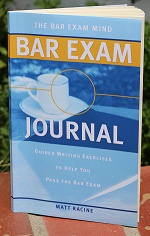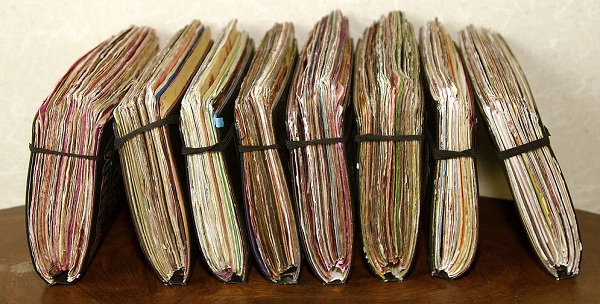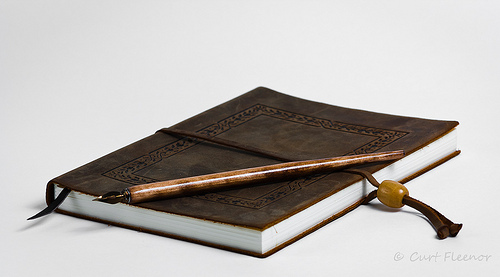Keeping a journal is a great way to gain self-insight, to blow off steam, and to mull over new ideas.
The basics of keeping a journal are: (1) get paper; and (2) write on paper.
But, to make it more effective, consider these nine journal writing tips.
First, make sure that you can keep your journal private.
The purpose of the journal is to express your honest thoughts and feelings. Some people have a hard time being honest if they think someone else will read what they have written. Your journal should be a safe place to explore whatever is on your mind without having to worry about how your thoughts and feelings might affect others. If you eventually choose to share your journal with someone, that is fine, but make sure that sharing is on your terms.
Second, keep all of your responses together in a single location.
I recommend you get a paper journal or notebook to write in and promise to write only journal entries in it. If you prefer a minimalist approach, you can just get a stack of paper and staple it together.
Third, write your journal by hand.
While it is possible to record your thoughts on a word processor, I think it is better to get away from technology for a few minutes and put your thoughts directly onto paper. Handwriting seems to have a contemplative effect that pushing keys has yet to equal. In the end, however, do whatever you feel most comfortable with to ensure that you will actually write journal entries.
Fourth, do not worry about grammar and spelling.
Most people have to worry about those things at school or work, so give yourself a break from perfection while journaling. If you spell something wrong, keep writing. Let your thoughts flow. As long as you can read and understand what you have written, nothing else matters. This is your personal stash.
Fifth, decide on a time and place for journaling where you can do it in private and without likelihood of interruption.
Since one aspect of journaling is catharsis, I recommend you choose a time near the end of the day. But, if the only time you can find is first thing in the morning or at lunch time, then do it then. Of course, if you discover that the time you chose to journal is no longer working for you, pick a new time.
Sixth, write as quickly as you can.
By writing quickly, we short-circuit our inner critic and get the thoughts on the page. Even if what you are writing does not seem to make sense at the moment of writing, just keep going. Once you complete your entry, it is often surprising how insightful it can be upon re-reading.
Seventh, be sure to have fun.
If you feel like drawing a doodle or a chart while you are journaling, then do it. Do you want to go outside the ruled lines on the page and write in a spiral? Do it if the mood strikes you. Just get the thoughts out however they want to emerge.
Eighth, there is no “right way” to journal.
I tend to be a bit long-winded when I journal. But others keep very short journals, more akin to bullet-point lists than to complete sentences and paragraphs. Whatever makes the most sense to you is the “right way” for your journal.
Ninth, review your prior journal entries periodically.
If you were journaling every day for a year, I would suggest reviewing previous entries once a month. If you only journal once a week, then maybe annual reviews are most likely to provide insight. Look for any patterns or issues that you should act on. If a negative pattern is emerging, try to find a way to counteract it. If a positive pattern is present, do what you can to enhance it.
***
Do you keep a journal? What tips would you add? Please share them in the comments.
***
 Be sure to check out The Bar Exam Mind Bar Exam Journal: Guided Writing Exercises to Help You Pass the Bar Exam.
Be sure to check out The Bar Exam Mind Bar Exam Journal: Guided Writing Exercises to Help You Pass the Bar Exam.
[Photos: man writing and hands and fun]
P.S. -- Want a FREE copy of my Bar Exam Mind audiobook?
You can get a free copy of my audiobook when you sign up for a free trial at Audible. Get the details by clicking here.








